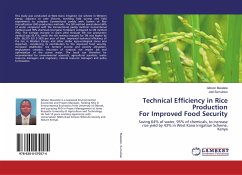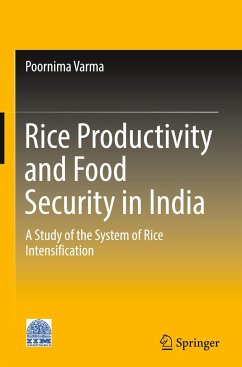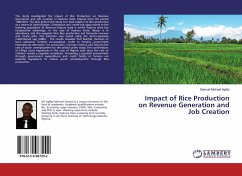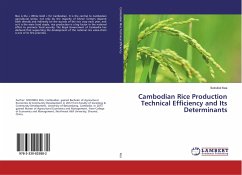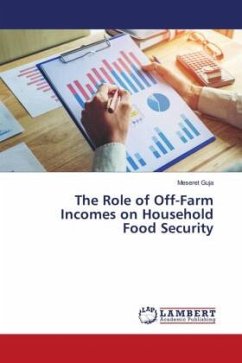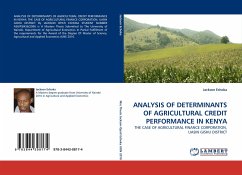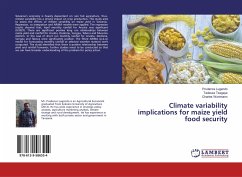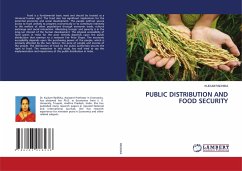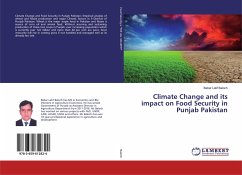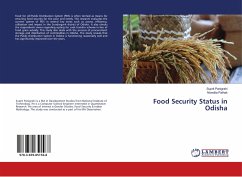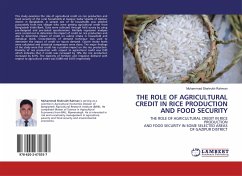
THE ROLE OF AGRICULTURAL CREDIT IN RICE PRODUCTION AND FOOD SECURITY
THE ROLE OF AGRICULTURAL CREDIT IN RICE PRODUCTIONAND FOOD SECURITY IN SOME SELECTED AREASOF GAZIPUR DISTRICT
Versandkostenfrei!
Versandfertig in 6-10 Tagen
27,99 €
inkl. MwSt.

PAYBACK Punkte
14 °P sammeln!
This study examines the role of agricultural credit on rice production and food security of the rural households at Gazipur Sadar Upazila of Gazipur district in Bangladesh. A sample size of 50 households was selected purposively from two villages who were getting agricultural credit from Bangladesh Krishi Bank. Data were collected through field survey by using pre-designed and pre-tested questionnaire. Multiple regression analyses were carried out to determine the impact of credit on rice production and also to determine impact of credit on calorie intake in household and individual levels. Cr...
This study examines the role of agricultural credit on rice production and food security of the rural households at Gazipur Sadar Upazila of Gazipur district in Bangladesh. A sample size of 50 households was selected purposively from two villages who were getting agricultural credit from Bangladesh Krishi Bank. Data were collected through field survey by using pre-designed and pre-tested questionnaire. Multiple regression analyses were carried out to determine the impact of credit on rice production and also to determine impact of credit on calorie intake in household and individual levels. Cross-elasticity of demand technique was used to determine the impact of credit on inputs demand. Calorie intake levels were calculated and statistical comparisons were done. The major findings of the study were that credit has a positive impact on the rice production. Elasticity of rice production with respect to agricultural credit was 0.85 which indicates that if credit was increased by 10%the rice production increased by 8.5%. The elasticity of fertilizer and irrigation demand with respect to agricultural credit was 0.889 and 0.815 respectively.



